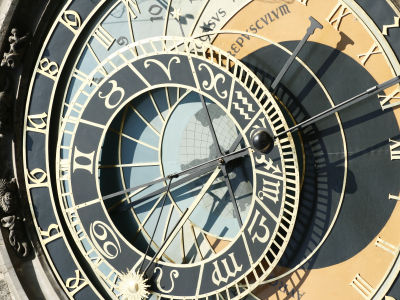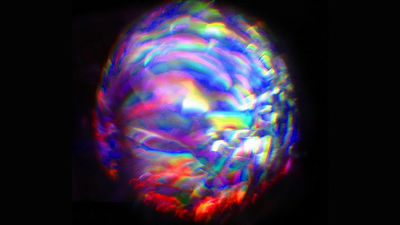What is the way to demonstrate the 'simulation hypothesis' that we live in a computer simulation?

There is an idea called the '
How to test if we're living in a computer simulation
https://theconversation.com/how-to-test-if-were-living-in-a-computer-simulation-194929

The idea that 'the universe is actually a simulation' was proposed by Oxford University professor and philosopher Nick Bostrom in 2003. Human beings are conducting research by creating a virtual universe and performing simulations, but when a more developed civilization does the same, ``the possibility that the earth and the people living on the earth are inhabitants in the simulation The sex is also high,” claims Bostrom. Opinions are divided among mathematicians and theoretical physicists about the pros and cons of the simulation hypothesis, and astrophysicist Neil DeGrasse Tyson says, ``The possibility can be fifty fifty.''
Do humans actually live in a simulated world? Scientists discuss the hypothesis that

On the other hand, a research team of theoretical physicists at the University of Oxford showed research results that denied the simulation hypothesis in 2017. In research, it is concluded that ``the real world we live in is not just a simulation'' from ``gravitational anomalies'' and ``computational complexity''. An important factor here is that 'when the simulation becomes more complex in proportion to the number of particles, the computer power required for the simulation increases without limit.'
``We are not living in a computer simulation,'' said a researcher-GIGAZINE

By Bruce Aldridge
Mr. Bopson explains why the simulation hypothesis is plausible: ``All visible matter in the universe has the smallest unit of elementary particles, which matches the smallest size bit based on information processing. In other words, we can say that our world is 'pixelated'.' It is also strongly influenced by the fact that the world is entirely mathematical, in that the laws of physics resemble programming code, and that mathematical equations and geometric patterns can be found and applied anywhere in the world. .
Bopson cites quantum mechanics as the most supporting evidence for the simulation hypothesis. In quantum mechanics, there is a concept called ' superposition of states,' which states that 'even particles in a fixed state cannot be determined unless they are actually observed or measured.' Bopson points out that this is the same as a virtual world simulation that requires observers and programmers. In addition, 'quantum entanglement', in which 'bonded particles automatically move at a speed exceeding the theoretical speed of light, no matter how far apart they are,' is also inconceivable in the laws of physics, but in virtual simulations. I think it can be explained by setting it in code.

Mr. Bopson proposes two kinds of ideas roughly divided into what kind of experiments are possible to prove the simulation hypothesis. First, given that our universe is a simulated one, it's a reasonable idea to assume that it contains many bits of information all around us. 'Detecting these bits of information proves the simulation hypothesis,' said Bopson.
In 2022, Mr. Bopson published a paper in AIP Advances, an open-access peer-reviewed scientific mega-journal, that makes specific predictions about the ``most likely amount of information per elementary particle''. If we erase the information in an elementary particle with a flash of energy, we can predict the frequency range of the resulting photons. According to Bopson's 2019 proposal for the ``Mass-Energy-Information (M/E/I) Equivalence Principle'', mass can be expressed as either energy or information, and vice versa. Mr. Bopson explains that simulation hypotheses can be verified by calculating the energy amount of elementary particles, which are the smallest units in the real world, and the mass of bits, which are the smallest units in the simulation world.

As a second approach, Mr. Bopson picks up the claim by physicist John Barrow that ``simulations accumulate small computational errors that require programmer corrections to continue.'' According to Mr. Barlow, in the simulated world, contradictory experimental results, such as changes in natural constants, suddenly appear, and it is possible for us to experience them as new common sense. It is said that it is expensive. So it's also important to keep an eye on these constants, Bopson points out.
Bopson concludes by saying that even if the simulation hypothesis is only an experimental idea, the more we take it seriously, the more we can prove or disprove one of the world's greatest mysteries: the nature of our reality. I argue that it is possible.
Related Posts:
in Science, Posted by log1e_dh





